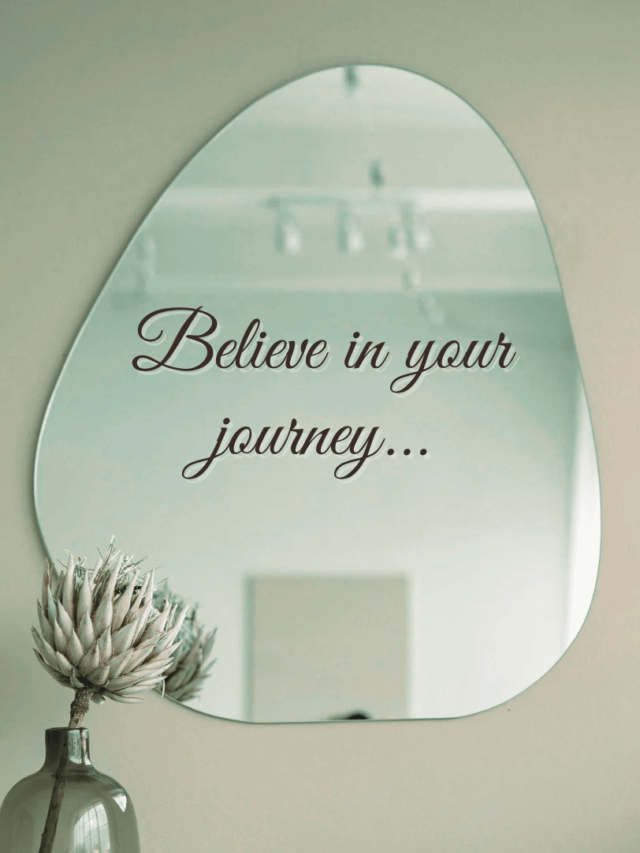Role Title: Curiosity as a Skill: Strategies for Mental Flexibility
Employer:
Required Experience:
Location:
Date published: 25 October 2024
In an age of information overload and ever-evolving workplace demands, one skill stands out as both timeless and profoundly essential: curiosity. Cultivating curiosity is about more than learning new information; it’s about developing mental flexibility, adaptability, and an openness to diverse perspectives. This article will guide you through actionable, insightful strategies to help you cultivate curiosity as a skill—one that can transform both personal and professional interactions.
Whether you’re a professional seeking to enrich business relationships, a student wanting to absorb more, or simply someone looking to embrace a more curious outlook on life, these tips will help you embrace curiosity as a lifelong habit.
Think Like a Beginner: Embrace Fresh Curiosity
When was the last time you felt that rush of excitement from learning something entirely new? Approaching topics with a “beginner’s mind” means viewing things with fresh curiosity, as if seeing them for the first time. Experts sometimes call this “beginner’s mind,” which encourages us to set aside prior knowledge and assumptions to foster openness. Imagine you’re an experienced chef attending a cooking class on basic techniques. Instead of dismissing the basics, approach it like a novice—wondering why each step is necessary and how ingredients react.
This approach isn’t just for chefs; it’s beneficial for anyone in business. When you “think like a beginner,” you’ll find that everyday interactions, meetings, or projects reveal nuances you may have missed otherwise. Practicing this mindset can also create a ripple effect in the workplace, encouraging teammates to share ideas openly and bringing a renewed energy to otherwise routine discussions.
Focus on ‘Why’ and ‘How’ Over ‘What’: Deepen Your Understanding
Curiosity often goes beyond the surface. Rather than focusing on the “what,” which usually yields a brief answer, shift your focus to the “why” and “how” of a subject. This approach allows for a deeper understanding, making complex information more digestible and memorable. For instance, rather than just noting what a product does, delve into why it was created and how it’s designed to solve a specific problem. This mindset can not only help you better understand the products or services you work with but also give you valuable insights into customer needs and market gaps.
In personal relationships, focusing on the “why” and “how” can help build empathy. Imagine a colleague is late to a meeting because of traffic. Instead of just acknowledging the “what” (lateness), consider asking about the “why” or “how” to connect on a more empathetic level. This subtle shift can deepen rapport and strengthen relationships, leading to more open, meaningful exchanges.
Ask Yourself “What If?” Scenarios: Fuel Hypothetical Curiosity
“What if?” is a powerful question—it pushes us to think outside the box and imagine alternate realities. In a business context, asking “what if?” can lead to unexpected ideas and solutions. What if you approached an established project from a completely different angle? What if you introduced a new technology into your workflow? These hypothetical scenarios can stimulate creativity and uncover paths you might never have considered.
“What if?” questions aren’t limited to big decisions either. For instance, ask, “What if I took a different route to work?” or “What if I attended an industry event in a field outside my own?” Even small “what ifs” encourage flexibility and open the door to fresh experiences that keep curiosity alive.
Question Assumptions Regularly: Identify and Rethink Biases
Our assumptions often guide our thinking without us even realising it. Questioning these assumptions regularly can make us more mentally agile, freeing us from biases that may limit our perspective. Start by identifying areas where you may have deeply ingrained assumptions. For example, if you’ve always assumed that a specific market approach is the best, ask yourself why. What are the underlying beliefs fuelling that assumption?
In practice, questioning assumptions can lead to breakthrough insights. For instance, during a project at work, challenge the team’s assumptions about the target audience or product features. Doing so may reveal gaps or opportunities to enhance your product. And on a personal level, questioning your assumptions encourages growth and expands your understanding of the world.
Explore Contradictory Ideas: Challenge Your Views
Exploring contradictory ideas might sound counterintuitive, but it’s one of the best ways to cultivate curiosity and mental flexibility. By deliberately engaging with opposing perspectives, you broaden your ability to understand complex issues and see things from different angles. This approach can be especially valuable in business, where opposing viewpoints can reveal potential risks, opportunities, and alternative strategies.
Imagine you’re working on a project focused on digital marketing. Reading about the limitations or downsides of digital marketing strategies, even if you’re an advocate, will allow you to make more balanced, well-informed decisions. Embracing contradictory ideas doesn’t mean abandoning your perspective; it simply provides a broader toolkit for problem-solving and innovation.
Read in Short Bursts: Absorb Information Intensely
The brain thrives on novelty, but modern life makes deep, focused reading challenging. To satisfy both your curiosity and need for manageable learning, try reading in short, intense bursts. This approach allows you to absorb information quickly and retain it better. For instance, if you’re reading a book on business strategy, read a few pages, take notes, and then take a break to reflect.
Short bursts also prevent burnout, making learning feel more like a fun exercise than a chore. Additionally, absorbing small chunks of information quickly helps your brain retain knowledge, strengthening your ability to recall details and insights later.
Read Widely on Random Topics: Expand Your Knowledge Base
Curiosity thrives on diversity. By reading widely on random topics, you expose yourself to a variety of ideas, fields, and cultures. This habit not only keeps your mind engaged but also provides a rich source of inspiration for problem-solving and creativity. For example, if you’re a marketer, reading about psychology or art history might give you insights into customer behavior or visual aesthetics that enhance your work.
Reading widely also makes you a more interesting conversationalist and can help you connect with people from different backgrounds. Plus, when you read about topics outside your profession, you’ll be surprised how often seemingly unrelated information becomes useful in unexpected ways.
Take Notes with Doodles and Diagrams: Make Information Memorable
Taking notes with doodles, diagrams, or simple sketches is a fun way to retain information while tapping into visual learning. Visual note-taking encourages creative thinking and makes abstract concepts easier to remember. For instance, if you’re learning about a new workflow, try sketching out the steps or creating a flowchart rather than just listing them in text.
This method can also be helpful during meetings, brainstorming sessions, or personal learning sessions. It helps you process information actively rather than passively, creating a deeper connection with the material and making it easier to recall when you need it.
Seek Out Micro-Adventures: Embrace New Experiences
Curiosity often springs from new experiences. Micro-adventures—small, manageable explorations—are an excellent way to satisfy this need without requiring major time or resource commitments. Try taking a different route to work, exploring a new coffee shop, or attending a community event you wouldn’t normally consider.
These micro-adventures not only make life more exciting but also create new neural pathways in the brain, boosting mental agility. In a professional context, this practice can encourage adaptability, making you more receptive to new ideas and approaches. Plus, you never know when a casual encounter during a micro-adventure might lead to a meaningful conversation or professional opportunity.
Volunteer for New Projects: Gain Fresh Skills
One of the best ways to stay curious is to regularly step into the unknown by volunteering for new projects. Volunteering allows you to learn on the job, explore new skills, and gain hands-on experience. Even if the project seems only tangentially related to your expertise, it can still offer valuable insights and expose you to fresh perspectives.
In a workplace setting, volunteering for projects outside your department can improve your understanding of the organization’s overall goals and operations. For instance, if you work in marketing, volunteering for a customer service initiative could provide firsthand insights into customer needs. Such experiences expand your skill set and make you more versatile.
Challenge Your Comfort Zone: Embrace Mental Discomfort
Curiosity and growth often lie just beyond the boundaries of your comfort zone. By pushing yourself to try new things or tackle difficult tasks, you keep your mind sharp and adaptable. This can be as simple as trying a new hobby, picking up a foreign language, or learning a skill outside your expertise.
Challenging your comfort zone helps build resilience, allowing you to approach future challenges with greater ease. In professional life, embracing discomfort might mean taking on a challenging project, attending networking events, or giving a presentation in front of a larger audience. The more you step out of your comfort zone, the easier it becomes to face new challenges with confidence.
Engage in Conversations with Different Age Groups: Gain Fresh Insights
Curiosity often lies in understanding how others see the world. Engaging in conversations with people of different age groups can offer unique insights and broaden your perspective. Younger generations may introduce you to new technologies or cultural trends, while older generations can share valuable lessons from experience.
For instance, if you’re in your 30s, speaking with someone in their early 20s might reveal insights into the latest social media trends or emerging technology platforms. Alternatively, speaking with someone in their 60s could offer lessons in resilience, patience, and a long-term view that can be helpful in business and life.
Practice Reflective Journaling: Review What You’ve Learned
Reflective journaling is a powerful tool for reinforcing what you’ve learned and processing new information. By setting aside a few minutes each day to jot down insights, thoughts, or observations, you create a habit of actively engaging with your experiences. This practice not only helps you retain information but also promotes a deeper understanding of your own growth and curiosity.
In practice, reflective journaling can be as simple as jotting down one new thing you learned each day. Over time, you’ll accumulate a personal record of your learning journey, which can serve as both a source of inspiration and a reminder of how far you’ve come.
Key Takeaways
Here are some actionable steps you can take right away to foster curiosity and enhance mental flexibility:
- Start small – Pick one strategy from this list to try each week.
- Ask deeper questions – Shift your focus from “what” to “why” and “how.”
- Challenge your routine – Introduce a micro-adventure into your daily life.
- Volunteer for a new task – Step outside your expertise.
- Keep a curiosity journal – Record daily insights or questions.
- Practice active reading – Read in short bursts and take notes visually.
- Engage with diverse groups – Seek conversations with people of all ages.
- Try a “what if” exercise – Use hypotheticals to brainstorm ideas.
- Reflect regularly – Dedicate a few minutes each day to review what you’ve learned.
- Set a curiosity goal – Define one new topic or skill to explore each month.
By embracing curiosity as a skill, you’ll not only expand your knowledge but also develop a flexible, adaptive mindset that can handle whatever life throws your way. With these strategies in your toolkit, you’re ready to foster curiosity and mental agility for a lifetime of growth, creativity, and insight.




